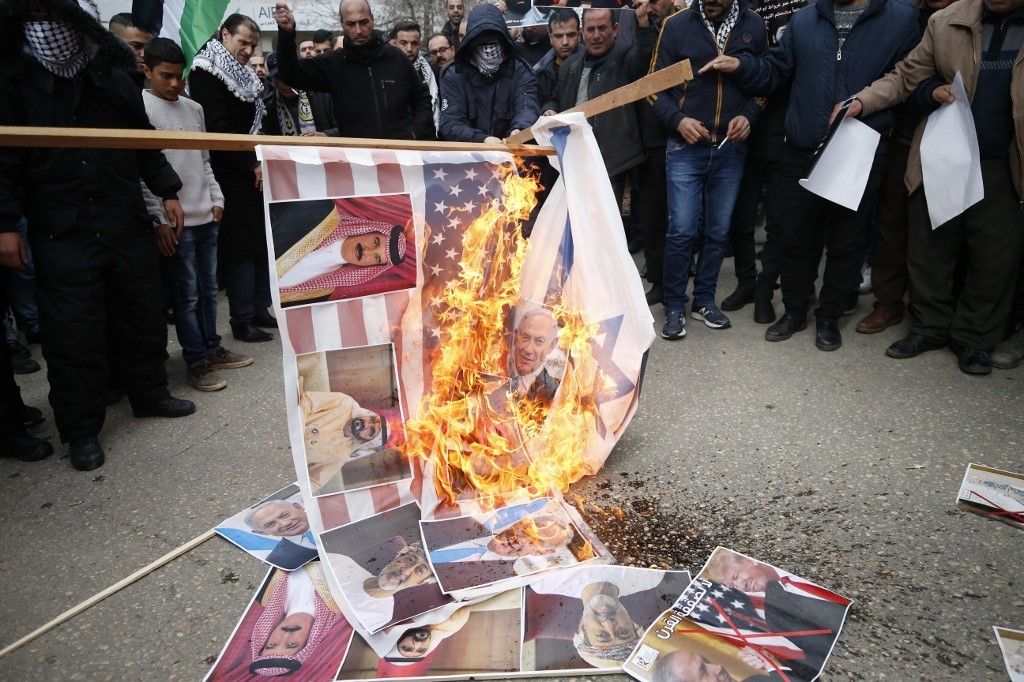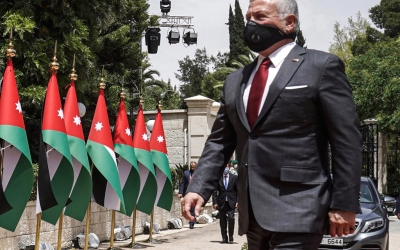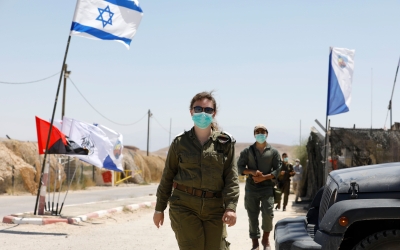Arab leaders will not take action against Israel over annexation: Report

Senior officials from several Arab states have said they will not take any action against Israel if it goes ahead with plans to illegally annex large parts of the occupied West Bank, the Israel Hayom newspaper reported.
The right-wing newspaper reported on Sunday that during recent diplomatic talks with Israel, high-level officials from Egypt, Saudi Arabia and other Gulf countries said they had no plans to take meaningful action and will only issue "declarative condemnations," despite previously criticising Israel's annexation plans.
The decision not to act, however, partially depends on the reaction of each country's respective population, the newspaper said, indicating that if annexation were to cause unrest at home, then governments would need to re-strategise.
So far, Jordan's King Abdullah is the only Arab head-of-state to condemn it outright, warning it could trigger a "massive conflict," the paper reported.
Israel's plans to annex approximately one third of the West Bank was given the greenlight in January in US President Donald Trump's so-called so called 'deal of the century,' despite global criticism over the illegal move.
The plan also envisages the creation of a Palestinian state with no control over its borders or airspace.
The Palestinians rejected the proposal and voiced outrage at Israel's proposed annexation.
Israeli Prime Minister Benjamin Netanyahu missed his self-imposed 1 July deadline to start the process, with fraught talks with the United States having yet to yield results.
Last Week, Netanyahu's coalition partner Benny Gantz told a US envoy that annexation would have to wait while the country deals with a surge in coronavirus cases.
Israel's planned annexation of the Jordan Valley: Why it matters
+ Show - HideThe annexation of the Jordan Valley could effectively kill whatever hopes remain for a two-state solution to the Israel-Palestine conflict as it would render completely impossible the establishment of a viable, contiguous Palestinian state.
In April, Prime Minister Benjamin Netanyahu reached an agreement with his rival Benny Gantz to form a unity government that seek to impose Israeli sovereignty over the Jordan Valley. Legislature could be discussed from 1 July.
The Jordan Valley accounts for around one-third of the occupied West Bank (almost 2,400 square kilometres), where 30 Israeli agricultural settlements house around 11,000 settlers.
Some 56,000 Palestinians also reside in the Jordan Valley, including in the city of Jericho, where their daily lives are deeply impacted by Israeli occupation policies.
The area is rich in minerals and agricultural soil and is a highly strategic area, as it lies along the Jordanian border.
Jordan, the Palestinian Authority in Ramallah, and senior officials in the European Union openly oppose the annexation plan, while the administration of US President Donald Trump has encouraged such moves.
Arab countries have long seen a settlement to the Israeli-Palestinian conflict as their condition for normalising relations with Israel, but Gulf states such as Saudi Arabia and the UAE have recently begun to shift their policies.
Last month Israel announced a new partnership with the United Arab Emirates against coronavirus, despite public outcry from Palestinian leaders, who notably refused the medical aid from the UAE because the shipments were received at Israel's airport in Tel Aviv instead of the West Bank's border with Jordan or Gaza's border with Egypt.
Encouraged by the United States, efforts to normalise relations with Israel have also been heightened amid shared concerns over Iran.
In January, Middle East Eye revealed that Saudi Arabia, the UAE and Egypt had agreed on a plan with Israel to welcome Syrian President Bashar al-Assad back into the Arab League in order to marginalise the regional influence of Iran, as well as Turkey.
Middle East Eye delivers independent and unrivalled coverage and analysis of the Middle East, North Africa and beyond. To learn more about republishing this content and the associated fees, please fill out this form. More about MEE can be found here.






